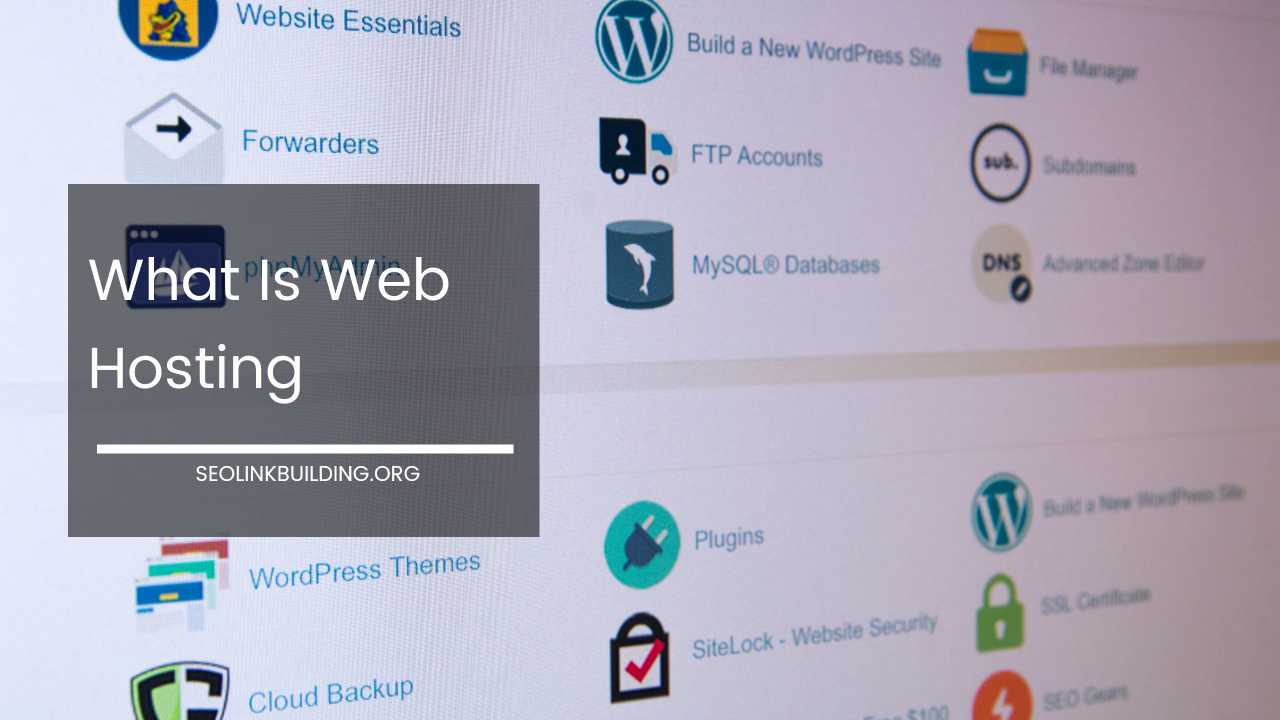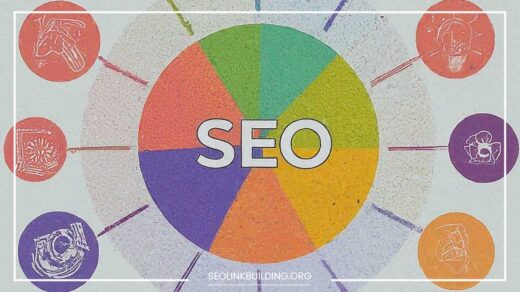What Is Web Hosting

What Is Web Hosting: Your Guide to Storing Your Website on the Internet
In today’s digital landscape, a website is no longer a luxury – it’s a necessity. It’s your virtual storefront, your creative canvas, or a platform to establish yourself as an authority in your field.
But just like a physical store needs a location to operate, your website needs a place to reside online. That’s where web hosting comes in.
This comprehensive guide dives deep into the world of web hosting, explaining the fundamentals, the technical aspects, different types of plans, and crucial factors to consider when choosing a web host.
By the end, you’ll be equipped to select the perfect hosting solution that caters to your website’s unique needs and empowers it to flourish online.
Demystifying Web Hosting: A Behind-the-Scenes Look
Web hosting, in essence, is a service that provides the foundation for your website to function and be visible on the internet. Imagine your website as a collection of files, including text, images, videos, code, and databases.
A web hosting company acts like a digital landlord, renting out space on powerful computers called servers to store these files. When someone types your website’s address (URL) into their browser, the server retrieves and displays the website’s content.
Think of it like this:
- Your Website: Your furniture, belongings, and the overall design of your store.
- The Server: The rented space in a building, with the necessary infrastructure to keep your store operational.
- The Web Hosting Company: The landlord who manages the building (server) and ensures everything runs smoothly (security, power, maintenance).
Here’s a closer look at the key components that make web hosting work:
-
Servers: These are high-performance computers specifically designed for continuous operation (24/7/365). They have powerful processors, ample memory (RAM), and significant storage capacity to handle website traffic efficiently.
-
Storage Space: This refers to the amount of disk space on the server allocated to your website’s files. It encompasses everything from text content and images to videos, databases, and email accounts (if applicable).
-
Bandwidth: Imagine a highway – bandwidth signifies the amount of data that can be transferred between the server and visitors’ browsers in a given timeframe. Websites with high traffic or those containing a lot of media (images, videos) require high bandwidth to ensure smooth loading times for visitors.
-
Web Server Software: This software acts as the translator between your website and the internet. It interprets incoming requests from visitors’ browsers, retrieves the relevant files from the server, and delivers the website’s content in a way that the browser can understand and display. Common web server software includes Apache and Nginx.
-
Operating System: Just like your computer needs an operating system (OS) to function, web servers also have operating systems like Linux or Windows Server. These OSes manage the server’s resources, security, and interaction with the web server software.
Unveiling the Different Types of Web Hosting: Finding the Perfect Fit
The beauty of web hosting lies in its variety. Different plans cater to diverse website needs and traffic volumes. Here’s a breakdown of the most common types of web hosting, along with their pros and cons:
-
Shared Hosting: This is the most affordable option, ideal for personal websites, blogs, or small businesses with low traffic. In shared hosting, your website resides on the same server as many other websites, sharing resources like CPU, RAM, and storage space. It’s a cost-effective way to get started online, but performance can be impacted if other websites on the server experience surges in traffic.
- Pros: Affordable, easy to set up, suitable for beginners.
- Cons: Limited resources, performance can be affected by other websites, less control over server environment.
-
Virtual Private Server (VPS) Hosting: VPS hosting offers a middle ground between shared and dedicated hosting. A virtual server is created on a physical server, allocating dedicated resources to your website for improved performance and stability compared to shared hosting. It’s suitable for growing websites with moderate traffic or those requiring more control over server resources.
- Pros: More control than shared hosting, improved performance and scalability, cost-effective compared to dedicated hosting.
- Cons: More technical knowledge required compared to shared hosting, might not be suitable for extremely high-traffic websites.
-
Dedicated Hosting: This is the premium option, offering the ultimate in control, security, and performance. With dedicated hosting, you lease an entire physical server for your website alone. This is ideal for high-traffic websites (e-commerce stores), mission-critical applications, or businesses with strict security requirements.
- Pros: Maximum control over server environment, highest performance and scalability, ideal for high-traffic websites and critical applications.
-
- Cons: Most expensive option, requires technical expertise to manage the server.
-
Cloud Hosting: Cloud hosting leverages a network of interconnected servers instead of a single physical server. This provides scalability and flexibility, allowing resources to be automatically adjusted based on your website’s traffic demands. Cloud hosting is a popular choice for businesses with fluctuating traffic patterns or those requiring a high degree of uptime and redundancy.
- Pros: Scalable resources, high uptime and redundancy, suitable for websites with fluctuating traffic.
- Cons: Can be more expensive than shared hosting for low-traffic websites, might require some technical knowledge to manage.
-
Managed Hosting: Managed hosting offers a comprehensive solution that goes beyond simply providing server space. Web hosting providers handle server management tasks like security updates, software installations, performance optimization, and backups. This is ideal for businesses or individuals who lack the technical expertise to manage their own server environment.
- Pros: Reduced server management burden, improved security and performance, peace of mind for non-technical users.
- Cons: Typically more expensive than shared hosting or VPS hosting, less control over the server environment.
Choosing the Right Web Host: A Comprehensive Checklist for Success
With a multitude of web hosting providers offering diverse plans, selecting the right one can be a daunting task. Here’s a comprehensive checklist to guide you through the process:
-
Identify Your Website’s Needs: The first step is to understand the specific requirements of your website. Consider factors like:
- Storage Space: How much storage space do you need for your website’s files (text, images, videos, etc.)?
- Bandwidth: Estimate the amount of traffic your website expects. High-traffic websites require more bandwidth to ensure smooth loading times.
- Security Features: Does your website handle sensitive information (e.g., credit cards)? If so, choose a web host with robust security measures like firewalls, malware protection, and secure socket layers (SSL).
- Scalability: Consider your website’s growth potential. Opt for a hosting plan that allows you to scale resources (storage, bandwidth) as your website traffic increases.
- Content Management System (CMS) Compatibility: If you plan to use a content management system (CMS) like WordPress, ensure the web host supports that specific CMS.
-
Traffic Volume: Estimate the amount of traffic your website expects to receive. Here’s a general guideline:
- Low Traffic (1,000 visitors/month or less): Shared hosting can be a sufficient option.
- Moderate Traffic (1,000 – 10,000 visitors/month): Consider VPS hosting for better performance and scalability.
- High Traffic (10,000+ visitors/month): Dedicated hosting or cloud hosting might be necessary to handle the traffic load.
-
Uptime and Reliability: Look for a web host with a proven track record of high uptime (percentage of time the server is operational). Aim for at least 99.9% uptime to ensure your website is accessible to visitors most of the time.
-
Security Features: Website security is paramount. Choose a web host that offers features like:
- Firewalls: These act as security barriers that filter incoming traffic and block malicious attempts to access your website.
- Malware Protection: Web hosts can offer tools to scan your website for malware and prevent infections.
- Backups: Regular backups ensure you have a copy of your website’s files in case of data loss due to hardware failure or security incidents.
- Secure Sockets Layer (SSL): SSL encrypts communication between your website and visitors’ browsers, protecting sensitive data like passwords and credit card information.
-
Customer Support: Reliable and responsive customer support is invaluable. Ensure the web host offers 24/7 support channels (phone, email, live chat) in case you encounter any technical difficulties.
-
Scalability: Consider your website’s growth potential. Opt for a hosting plan that allows you to seamlessly upgrade resources (storage, bandwidth, processing power) as your website’s traffic and complexity increase.
-
Price: Web hosting prices vary depending on the type of plan, features offered, and resource allocation. Compare pricing structures of different providers while keeping in mind the value proposition – the balance between features, performance, and cost.
-
Read Reviews and Do Your Research: Take the time to read reviews of potential web hosting providers from trusted sources and user forums. Look for feedback on uptime, performance, customer support, and ease of use.
- Free Trials and Money-Back Guarantees: Many web hosting companies offer free trials or money-back guarantees. This allows you to test out their service and see if it meets your needs before committing to a long-term plan.
- Additional Considerations:
-
- Domain Registration: Some web hosting providers offer domain registration services along with hosting plans. This can simplify the process of getting your website online, but it’s not always the most cost-effective option. You can compare prices for domain registration separately to potentially save money.
- Email Hosting: Do you need email addresses associated with your website domain (e.g., [email address removed])? If so, ensure the web hosting plan includes email hosting or offers it as an add-on service.
- Website Builder Tools: Some web hosting providers offer website builder tools that can help you create a website easily, even with limited technical knowledge. However, these tools might have limitations in terms of design flexibility and customization compared to building a website from scratch.
Beyond the Basics: Advanced Web Hosting Concepts
As your website grows and your technical expertise expands, you might delve into more advanced web hosting concepts:
-
Content Delivery Networks (CDNs): A CDN is a geographically distributed network of servers that store cached copies of your website’s static content (images, videos, CSS files). When a visitor accesses your website, the CDN server closest to their location delivers the content, resulting in faster loading times and improved website performance, especially for visitors in geographically distant locations.
-
E-commerce Hosting: If you plan to run an online store, consider e-commerce hosting plans specifically designed for the needs of online businesses. These plans often include features like shopping cart functionality, secure payment processing integration, and scalability to handle surges in traffic during sales or peak seasons.
-
Web Hosting Control Panel: Most web hosting providers offer a control panel that provides a user-friendly interface to manage your website hosting. Through the control panel, you can typically perform tasks like installing applications (like WordPress), managing email accounts, setting up databases, and monitoring website statistics.
Final Word: Choosing the Right Web Hosting Partner for Success
Selecting the right web hosting provider lays the foundation for your website’s success. By understanding the different types of hosting plans, considering your website’s specific needs, and carefully evaluating web hosting providers, you can choose the perfect partner to propel your online presence to new heights.
Remember, your web host is an essential part of your website’s ecosystem, so invest the time and effort to find a reliable and scalable solution that empowers your website to thrive in the ever-evolving digital landscape.













